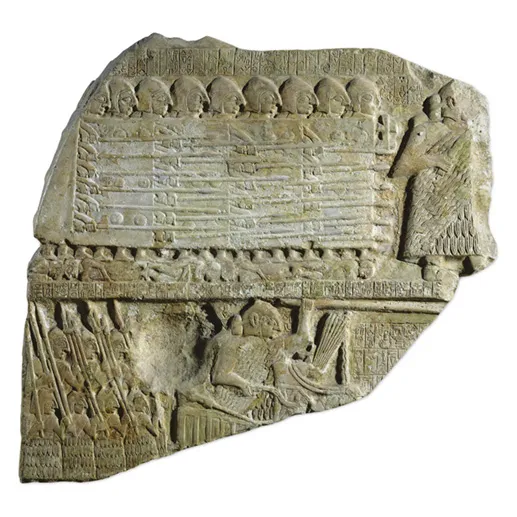![]()
1. War and Peace
Sumer and Akkad / Egypt / Assyria and Babylonia / Persia
The first empires were attempts to keep the peace. The great river valleys of the Nile, Tigris–Euphrates, and Indus all gave rise to wealthy farming civilizations able to produce crops, pottery, and textiles. Lacking minerals, timber, and other raw materials, however, these societies had to trade with people who lived in the less fertile lands beyond.
Competition for natural resources led to war, which became a struggle to impose peace and stability over an ever-wider area so economic life could flourish. But maintaining peace required more than force. Communications systems were necessary. Some form of local administration for conquered territories was needed. In the long run, a way to win hearts and minds had to be found—the more so the larger empires grew.
The context in which the first empires arose 3000–2000 bce
Irrigation agriculture produced centrally organized states, expanding trade networks, and a competitiveness fiercest along the Tigris and Euphrates.
Sumer and Akkad
The first experiments in empire-building emerged from the evolution of city-states in Mesopotamia. Each city-state concentrated wealth and power into the hands of one person as never before, but there was competition between them. The result was war, to which the only answer seemed to be more war, driven by the dream of a supreme victor imposing peace. But waging war and imposing lasting peace were two different things.
Inventing the state
Before about 6000 bce, no one had settled the delta created by the Tigris and the Euphrates, which the Greeks were later to call Mesopotamia, “the land between the rivers,” and which is now Iraq. There was little here to attract hunters and gatherers of wild food and even less to attract the first farmers working the surrounding hillsides. They needed rain for their crops but in the Mesopotamian valley there was hardly any rain. Instead, there were two rivers that flooded the region every spring, creating a temporary swampland destined only to bake dry and crack in the scorching heat.
But the silt from the two rivers produced a light soil that was easy to work in a time before metal tools, so gradually people began to come down from the hills until, by around 5000 bce, the riverbanks of the far south had become dotted with villages. The villagers shared a common culture and named the region “Sumer.”
What made life in Sumer possible was cooperation. There was more than enough water in the rivers to make up for the lack of rainfall, but to make cultivation possible it had to be controlled. Dikes were needed to prevent flooding, then a network of irrigation channels had to be dug to bring river water to the crops. Constructing and maintaining dikes and ditches was a huge undertaking that demanded a great and ongoing collective effort. But irrigation yielded big enough harvests for stores of surplus food to be built up, which made taxation possible.
Eannatum of Lagash leads his troops against the city of Umma in a border dispute concerning irrigation ca. 2450 bce. Eannatum was one of several Sumerian rulers who moved toward controlling the whole of Sumer in the period between Gilgamesh and Sargon.
An administrator was chosen to oversee a single irrigation system connecting several villages. He organized work teams and collected taxes to pay for maintenance work in the form of a percentage of agricultural produce. The administrator’s village grew larger and more wealthy than its neighbors, becoming the center for local trade as well as taxation. It became a city-state, controlling a group of satellite villages and their fields. Between 4000 and 3000 bce, dozens of such city-states established themselves throughout Sumer.
These were societies of a size and complexity hitherto unknown, brought into being by efficient management. Without keeping track of who owed what to whom, the latticework of relationships supporting the economy would collapse. Luckily, the land between the rivers had no shortage of clay and a series of marks made by the end of a reed pressed into a wet clay tablet created a permanent record when the clay dried. From these beginnings the Sumerians invented writing and recorded history.
War
As Sumer prospered, so its agricultural wealth enticed the nomads of the western desert and the hill-tribes of the Zagros Mountains to mount raids. Each city-state responded by choosing a war-leader, who used the public coffers to equip and train an army and build a city wall behind which everyone could hide.
But the raiding parties kept coming. It became obvious that collective action beyond city-state level was called for, so the war-leaders of several cities met in the city of Nippur and formed a league to defend all of Sumer against outsiders. Impromptu raids by scattered tribes were no match for the combined powers of a developed civilization, and after the formation of the Nippur League, they largely died away.
Deprived of a common enemy, however, Sumer’s city-states found cooperation more difficult. Each of the big cities now had a wall, a well-equipped army, and a military commander reluctant to hand power back to a peacetime administrator. There was always an excuse for conflict in Sumer because land and water had to be so carefully managed. There was also more to be gained from going to war against a wealthy city than a raiding party, especially because they now contained stashes of luxury goods.
The surplus produced by irrigation farming was able to support new social classes. Incessant raiding had pushed many to leave the land for a safer life within the city walls where ...


